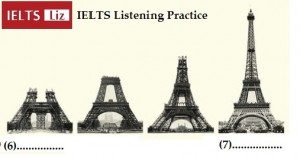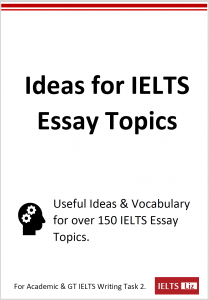Learn about how your IELTS writing test is scored. Many students ask me if writing task 1 and task 2 are worth the same points and how the examiner gives a final total score. This page will explain how your score is calculated for IELTS writing.
Will I get the same score for task 1 and task 2? Are they marked together?
No. Writing task 1 and writing task 2 are marked individually. The marking criteria are not exactly the same. The examiner will give you a band score for writing task 1 and a band score for writing task 2. After that, your final IELTS writing band score is calculated.
Are IELTS writing task 1 and writing task 2 worth the same points?
No, they are not. Writing task 2 is worth more than writing task 1. You get twice the points for writing task 2 than you get for writing task 1. In other words, writing task 2 is about 60% of your marks and writing task 1 is about 30%.
Example of IELTS Writing Scoring:
For example:
Writing task 1 = band score 8
Writing Task 2 = band score 6
Total Writing Score = 6.5
You can calculate your own score: 8 + 6 + 6 = 20/3 = 6.66. Take one task 1 score and two task 2 scores and divide by 3.
Please note that these scores are only estimated calculations. I do not have access to the precise scoring used by IELTS. Your estimated score will be accurate within 0.5 band score.
Will IELTS tell you your score for task 1 and task 2?
No. It’s a shame but IELTS don’t release that information. So you won’t know what score you got for which task. You will only be told the total final score for all your writing.
Are writing task 1 and writing task 2 marked using the same criteria?
No. Each writing task 1 is scored using 4 assessment criteria. Each of the criteria is worth 25% of your marks for that task. 3 of those marking criteria are the same for task 1 and task 2. But one of the marking criteria is different See below:
- Task Achievement (Writing Task 1 Only): Information, Overview, Key Features
- Task Response (Writing Task 2 Only): Ideas, Addressing the Task, Conclusion, Developing Ideas
- Coherence & Cohesion: Paragraphing, Linking and Referencing
- Grammatical Range & Accuracy: Sentence Structures, Tenses, Punctuation, Number of Errors
- Lexical Resource: Vocabulary, Collocations, Spelling, Number of Errors
Differences between Band Scores 5 to 8 & How to Improve your Scores:
IELTS Writing Task 2 Scoring & Tips
IELTS Writing Task 1 Scoring & Tips
All IELTS Band Scores Explained
Main IELTS Pages
Develop your IELTS skills with tips, model answers, lessons, free videos and more.







